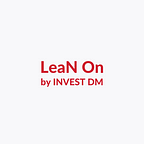Disaster and Pandemics Preparedness Start from the Family and Immediate Social Circle
In commemoration of Disaster Preparedness Day 2021 and the windup of COVID-19 risk communication outreach in Medan, Jabodetabek, and Bandung Raya areas, LeaN On by INVEST DM conducted a webinar entitled “The Role of Families in Pandemic Preparedness and other Disasters” on Thursday, 29 April 2021.
The virtual event invited four panelists: Dian Rosdiana from the Indonesian Anthropology Association (AAI), Ismail Marzuki from the Center for Child Studies and Protection (PKPA), Jonna Aman Damanik from the Indonesian Institute of Inclusion (I3), and Arief Gunawan from Female Plus. Also present as responders: Dra. Eny Supartini, M.M. as the Director of Preparedness — the National Agency for Disaster Management (BNPB) and Ir. Irawati Hermantyo as the Coordinator of Substance and Community Development — Behavior Change Department of COVID-19 Task Force.
The panel discussion was started with a presentation on community-based disaster preparedness by Jonna Damanik from the Indonesian Institute of Inclusion. Jonna, an advisor to ThisAble — LeaN On by INVEST DM’s partner, emphasized the importance of participation of people with disabilities and other marginalized members of the society in building disaster preparedness.
Furthermore, Jonna revealed that providing space for active participation as LeaN On did can empower and improve the capacity of marginalized community members while also enabling inclusive contribution to building disaster-resilient communities.
While on disaster preparedness within a traditional definition of family, Ismail Marzuki shared efforts which PKPA did to facilitate children’s participation. Based on their analysis of Children’s Vulnerability during the COVID-19 Pandemic in May-June last year, Ismail and his team developed several pandemic preparedness education media that suit the needs of children.
The educational media include online game applications, short animated film series, ladders board game, and storybooks with all messages around COVID-19 prevention. In addition to engaging children in prevention education, PKPA also involves them as the subject of COVID-19 prevention campaigns. “They can even participate in promoting health protocols through their creativity,” Ismail said.
Arief Gunawan who represented Female plus — an organization focused on the peer support program for people living with HIV — shared his views on the importance of building preparedness within the non-traditional family.
Non-traditional families are usually formed out of close-knitted social relations as commonly seen among peers of people who are living with HIV and other marginalized community members. In his presentation, Arief underlined the importance of encouraging the marginalized people to always work hand-in-hand in unraveling disaster-related issues that are affecting the community, as well as in mapping the solutions according to the conditions and specific needs of the community.
Dian Rosdiana complemented the three previous panelists by examining disaster risk communication and preparedness from the perspective of sociology. According to Dian, the success of behavior change efforts in the context of building disaster preparedness and resilient society is strongly affected by social norms formed by the existing social institutions.
“So, behavior change can not happen solely based on an individual’s motive. We must take the role of (pre-existing) social norms into account,” said Dian.
She further explained that social norms basically create inner conflict within the individuals when it clashes with the urge to change behavior to reduce risk of disasters. Those inner conflicts should be analyzed to find solutions that can bridge the existing social norms with the desired behavior changes. Thus, parties in charge can develop an effective disaster risk communication and preparedness strategy.
Representatives of the duty bearers who joined the panel warmly welcomed the insights from the four panelists. Eny Supartini from BNPB and Irawati Hermantyo from the COVID-19 Task Force’s Behavior Change Division expressed their appreciation towards the enlightening perspectives representing the marginalized groups and socio-cultural conditions of Indonesian society.
The hour-long discussion was well-summarized by a quote from Dian Rosdiana’s presentation: “The (behavior change) communication strategy today should evolve from the one that the government, donors, and CSOs have been implementing at the initial year of the pandemic.”
She further explained that at the beginning of the pandemic, the communication strategy was very exclusive. She recommended that policymakers and authorities adjust the COVID-19 communication strategy based on the Gender and Social Inclusion (GESI) perspective which she believes would be more appropriate for the current situation and needs.
LeaN On by INVEST DM is an inclusive RCCE program that aims to provide access to risk information and education on COVID-19 prevention, including information on available social protection services, for 165 thousand people with disabilities and other vulnerable groups in seven regions in Indonesia. This program is supported by the American people through USAID, and in partnership with BNPB, Kemenkumham, MAJu (The Asia Foundation) and a consortium of partners consisting of Mercy Corps Indonesia, ASB, ThisAble, Human Initiative and AtmaConnect.
The views and opinions of authors expressed herein do not necessarily state or reflect those of the U.S. Government or the USAID.
